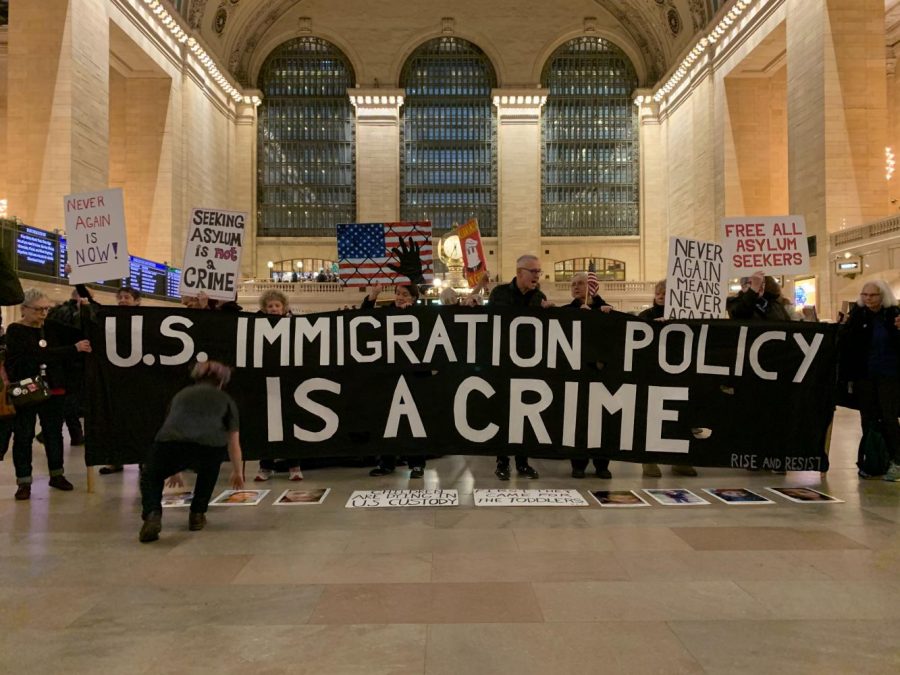More than 30 activists gathered in Grand Central Terminal on Thursday with signs and a large banner reading “U.S. Immigration Policy is a crime” to protest recent U.S. immigration policy.
The protest was the latest in a series of silent vigils frequently held by “Rise and Resist” — a direct action group created in response to the rhetoric and policy surrounding immigration after the election of President Donald Trump in 2016. The organization consists solely of volunteers who refer to it as non-hierarchical.
The protest comes two days after the Supreme Court ruled in favor of Trump’s new hardline immigration policy, which prevents immigrants from finding permanent residency based on how likely they are to use public benefits such as housing assistance, health care, or food stamps.
Livvie Mann, 71, a volunteer for the group, emphasized her disapproval of the Trump administration’s policy against illegal immigration.
“Basically [the protest] has to do with our horrific immigration policy and the inhumanity of it, the brutality of it,” Mann said. “And we’re here to bear witness.”
The Immigrations and Customs Enforcement agency is a federal agency responsible for managing the movement of people and goods across U.S. borders. The agency has been criticized for separating children and parents at the country’s southern border with Mexico, something Rise and Resist emphasizes in their silent vigil protests.
Raymond Black, 56, a member of the group, lamented the conditions of immigration detention centers and the current asylum protocol in place.
“People continue to languish in detention,” Black said. “And people aren’t being allowed to apply for asylum if they come through Guatemala or Mexico.”
Jamie Bauer, 61, echoed Black’s statement about asylum applications, adding that the U.S. should allow mass migrations to encourage diversity within the nation.
“I continue to be outraged by Trump’s immigration policies and by what is happening to people who legitimately want to seek asylum in the United States and between what is going on at the border with people being turned back and not being allowed to enter,” Bauer said. “They should be allowed to seek asylum.”
Black emphasized that the organization’s vigils should be safe spaces for anyone to come and show solidarity.
“Our immigration vigils are nonviolent silent vigils where nobody’s risking arrest,” Black said. “I think they would generally be a safe place for somebody to come, whether they’re documented or not.”
Email Lisa Cochran, Emily Mason, and Mina Mohammadi at [email protected]


























































































































































